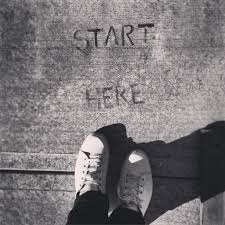Some will undoubtedly see art as compromise, escape from the brutal reality of true relief and development work. Can anything actually replace the fierce truth of holding the hands of those who are dying, forgotten and forsaken by their people?
Is anything as real as that? Perhaps not. And as immensely important as it is, the workers are few, and the harvest overwhelming. So the logic of pulling one off the line so to speak to pursue art seems more than mildly narcissistic and crude.
In the face of brutal reality how is pursuing artistic impulse a legitimate way to be “part of the solution/cure?” Artistic vision is by nature very isolating, very consuming, and very persistent. Once given credence, it all but devours one’s life.
But, if artistic vision is truly born in the cauldron of compassion, in the tensions of brutal truth and what could be, that vision can literally birth justice bearing fruit. The art literally bears the longing, the hope, the suffering, the pleading.
That sort of art carries with it, embodies, incarnates the very Spirit of God. It moves people beyond flimsy, mild intentions, or philanthropic charity. It profoundly messes with their vision of reality. It draws them into the suffering. It penetrates their comfort.
This vision of art as agitator, as literal voice of the voiceless, can be over-bearing, unseemly, aggressive, almost obtrusive, but it does not have to be. There is still style and tact; if executed well, the average person initially won’t know it is wrought with such. The real tension with artistic vision often comes in the marketing. In other words, creating a compelling, prophetic piece of art in one’s basement is one thing. It has merit in its own right. But how does one get an audience for such a piece of art?
We’d laugh to think of the Biblical prophets on the street corners today with no serious audience. In the days of Isaiah and Jeremiah the words of the prophets, though not always heeded, were heard all the way to the throne of the kings. In other words, the message had an audience. It may sound silly or unremarkable, but the difference between Jeremiah and the guy on the corner today may be context, or audience. One was called into a significant role, one was not really.
Can we think of making art without an audience? Can art be made in isolation of an audience? Will compelling art make a way for itself? Will it wriggle itself into a place where it can infect a group of people with holy discontent?
How can we free art to be an agent of change? How can we release it without being sucked into a system of selfish ambition that tends to favor things that are flattering to the system? Does ambition for our art to succeed necessarily taint the art?
Can art be experienced as more than promotion for the artist? Yes. Yes. Yes. If done well the art will take both artist in creating and audience in receiving well beyond the realm of cash flow. The business reality will be overshadowed by the eternal presence.
This, after all, is sort of the goal of art: to transport artist & audience beyond cause and effect, to transcend transaction, to on a soul level actually connect deeply to what is important and eternal. If not this, we have not art but mere temporary distraction.


